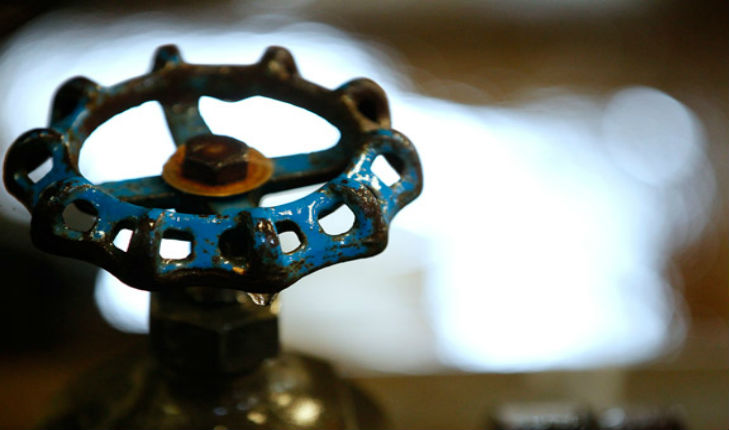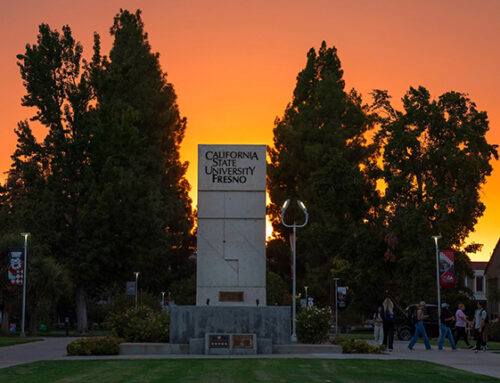Faculty and student water researchers at Fresno State will soon benefit from new grants providing $150,000 in funding to study innovative irrigation techniques, including artificial intelligence, low-flow filtration and aerial systems imagery.
A total of four grants were awarded by the Irrigation Innovation Consortium, a collaborative research effort to accelerate the development and adoption of water and energy-efficient irrigation technologies and practices through public-private partnerships. Each grant includes partnerships with one or more of the start-up ventures from the Water, Energy and Technology (WET) Center at Fresno State. The projects will involve over 20 Fresno State students.
“The partnership with the WET Center was critical in helping identify industry projects of high importance,” said Dr. David Zoldoske, an executive committee member for the consortium and a project specialist for the Center for Irrigation Technology. “It is a natural partnership between Fresno State researchers and start-up companies to advance new technologies.”
The research grants include:
Artificial intelligence model for estimating crop water demand
Faculty member Fayzul Pasha will lead work with the Center for Irrigation Technology and WET Center technology companies WiseConn, Dynamax, Irrometer and others. The partnership is designed to develop, validate and test an artificial intelligence (AI) model using data from a fully instrumented olive orchard located at the University Agricultural Laboratory at Fresno State. A model will be developed to estimate crop water demand with higher accuracy.
“This project will develop an AI model to improve agricultural water and energy use efficiency using field, plant and weather data,” Pasha said.
Development of a low-pressure and low-flow water and energy efficient media filtration system
Led by senior researcher Dr. Kaomine Vang at the Center for Irrigation Technology and in partnership with Perigo LLC, a WET Center member, the project will research a new filtration technology that is more energy efficient and will require less water for back flushing.
Satellite and unmanned aerial systems imagery use to implement timely irrigation strategies
Led by researchers at Colorado State University and collaborating with Fresno State researchers Dr. Florence Cassel and Dr. Dave Goorahoo at the Center for Irrigation Technology, this project will assess the accuracy of using unmanned aerial systems (UAS) and satellites to determine a crop’s actual water use and soil water deficit.
This study will be conducted at two research facilities in Colorado, one in Weslaco, Texas, one in Garden City, Kansas; and at commercial farms near Fresno. Remote sensing imagery will be collected daily from research sites to determine crop evapotranspiration and soil water deficits.
“We expect to develop novel guidelines to program the timing of irrigation using very high-resolution remote sensing data derived from satellite and UAS images,” Goorahoo said. “This, potentially, will have a great impact in water, soil and energy conservation in irrigated areas of the world.”
For more information on these new projects, contact the Center for Irrigation Technology at 559.278.2066.
(Story by Laura Ramos of the Center for Irrigation Technology at Fresno State)





